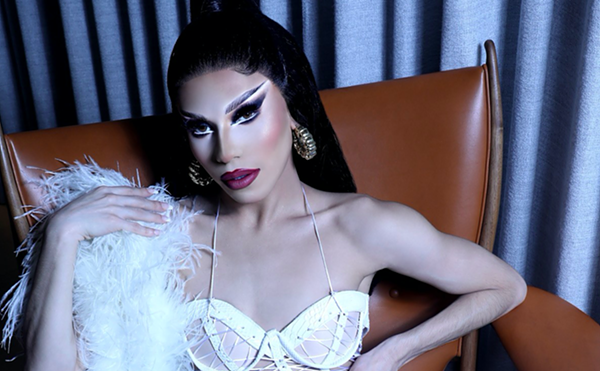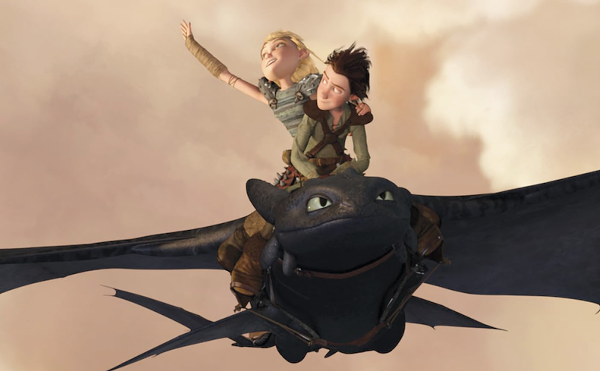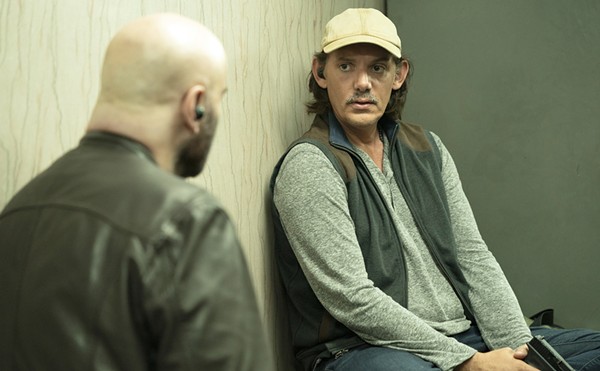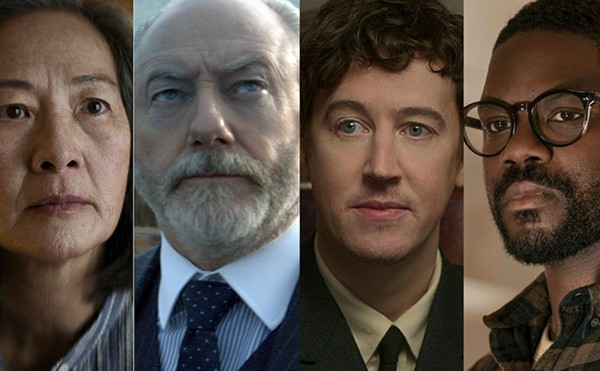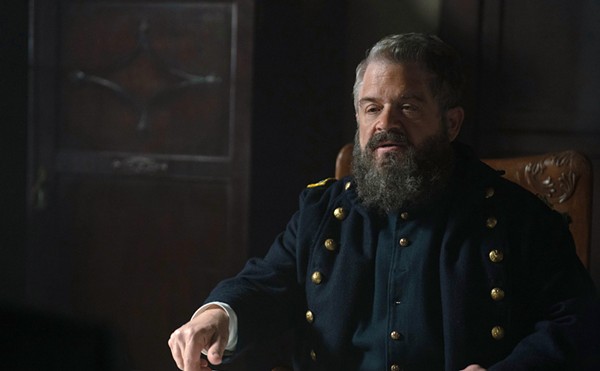Factotum's star and director talk about limning a literary legend &mdash sort of
Charles Bukowski was punk before punk was cool, a Beat Generation poet who composed his best work a generation too late, an inmate in an asylum who, like Ken Kesey, knew better than the society that wanted to rehabilitate him. Contrary to all good sense otherwise, Matt Dillon turned out to be the ideal cinematic stand-in; he stars in Factotum as working-class boozer Henry Chinaski, Bukowski’s alter ego, and, despite eschewing the writer’s lilting voice and acne-scarred visage, still manages to nail the spirit of one of disaffected youth’s greatest heroes.“No, `the producers` approached me,” he explains during a recent press day at Los Angeles’s Beverly Hilton. “I was really surprised, you know, because I’m obviously not the Bukowski type, physically. My first reaction was like, ‘I’m not the right guy for this, and obviously me, as Matt Dillon, I’m not the right person to play him.”
Even Dillon, it seems, is aware of the meathead stigma that has always dogged him; in person, he looks every bit the part, too, with a wife-beater peaking out of his designer shirt. It’s only when the star of The Outsiders and There’s Something About Mary star gets talking, with his deep, resonant voice and naturally laconic delivery, that it becomes clear how pensive and, believe it or not, well-read he is. He references Knut Hamsun, George Orwell, and Henry Miller with an effortlessness that could be great acting, but if so, is a lot better than anything he’s ever done onscreen. When he says he read a lot of Bukowski in his early 20s, both poetry and fiction, you believe he drew strength from Chinaski’s defeats, and that’s why, when the producers offered him Factotum, he hesitated out of respect, and maybe even reverence.
“I thought that, you know, I was not going to do a Charles Bukowski impersonation if I did it,” he says, citing some of the writer’s unique mannerisms and almost-effeminate voice in poetry readings. “And I think the freedom was that ... it was the alter ego of Bukowski, Henry Chinaski, which gave me some latitude to work with.”
“It’s about Henry Chinaski, not about Bukowski, even if it’s a very thin line,” Factotum’s director Bent Hamer (Kitchen Stories) insists. “And I think one of the main keys to approach the character was the understanding of not trying to find someone that fits very well into the cliché of Bukowski, because I think that’s the most visible thing about him … It’s so easy to stick to that. But still, when Matt Dillon was mentioned, he was surprised. I was surprised.
“I think to do an adaptation or whatever, doing a portrait, you have to find the soul in it,” the director continues. “Then you throw away the original piece and you try to turn it into your own, and, hopefully, it is both authentic and it captures what’s essential about the work you want to adapt.”
During a long canyon walk with Hamer, Dillon finally found the confidence he needed when Hamer put him on the phone with Bukowski’s widow, Linda. “We talked for hours, you know, and she immediately said, ‘Oh, no. You’d be a great Hank,’” he says. “I think she thought of Hank as this beautiful guy. I don’t think she was so concerned about, you know, the physical part of it. It was more who he was as a person.”
But she also managed to scuttle Dillon’s plan to ignore the man Bukowski was in his portrayal of Hank since, as she pointed out, Chinaski was really just Bukowski — an idealized version, maybe, but Bukowski nevertheless.
“What I took away `from my conversation with her` was that Bukowski … was not really that concerned with the material world,” he says. “You know, I remembered he said beauty was something that was really boring and not interesting to him. And he certainly wasn’t interested in fashion and clothing. He was really not a materialistic person in any way.”
And Linda Bukowski — “For whatever reason,” Dillon says — found this trait in Dillon, too. So he went back to the character-building drawing board, forced to accept that “all roads go back to Bukowski.” He studied old footage in order to wed Bukowski to both Chinaski and, if one gauges the actor correctly, to a bit of the idolized version of Buk that helped Dillon evolve into manhood.
That idolized, idealized Bukowski also proved illuminating all these years later when Dillon, now 42, realized his mental reference for the author was through a window more than 20 years old. He says, with a melancholic smirk, “I was reminded by Jim Stark, the producer, who said, ‘Hey, Matt, you’d really be a great Hank because you’re really at the right age to play `Bukowski now`, in those years that chronicle when he was struggling to get published.”
In other words, Matt Dillon has grown up. Maybe even gotten a bit old, maybe even a little defeated — as were, he says, Chinaski, and Bukowski himself.
“I think the thing I admired about him was his ability to sort of see life as a comedy in spite of the disasters surrounding his life. How dysfunctional, you know, his world is,” Dillon says. “You know, there’s a part of you that, no matter how bad you feel like your life is, it’s never as bad as Chinaski’s.”




